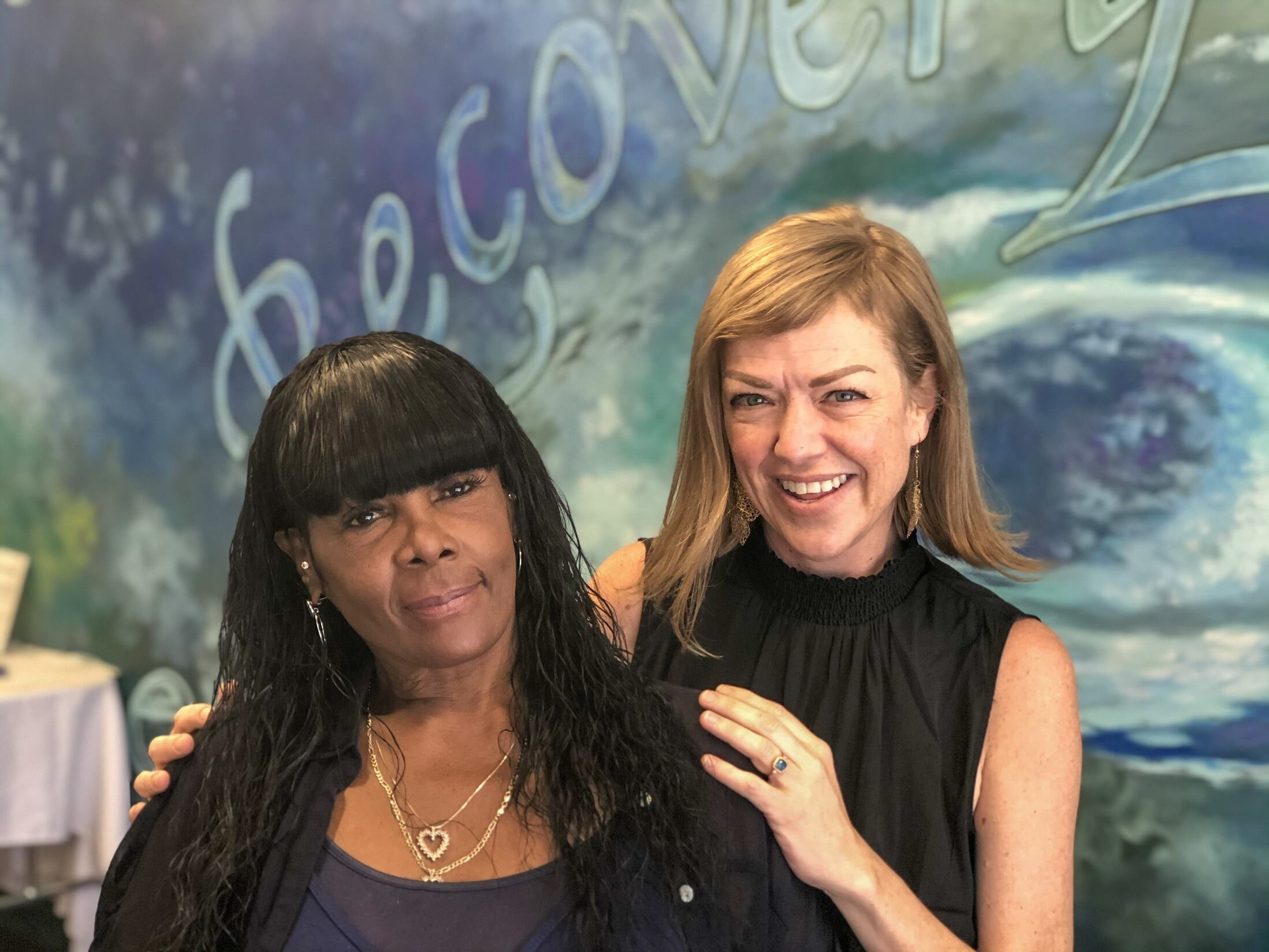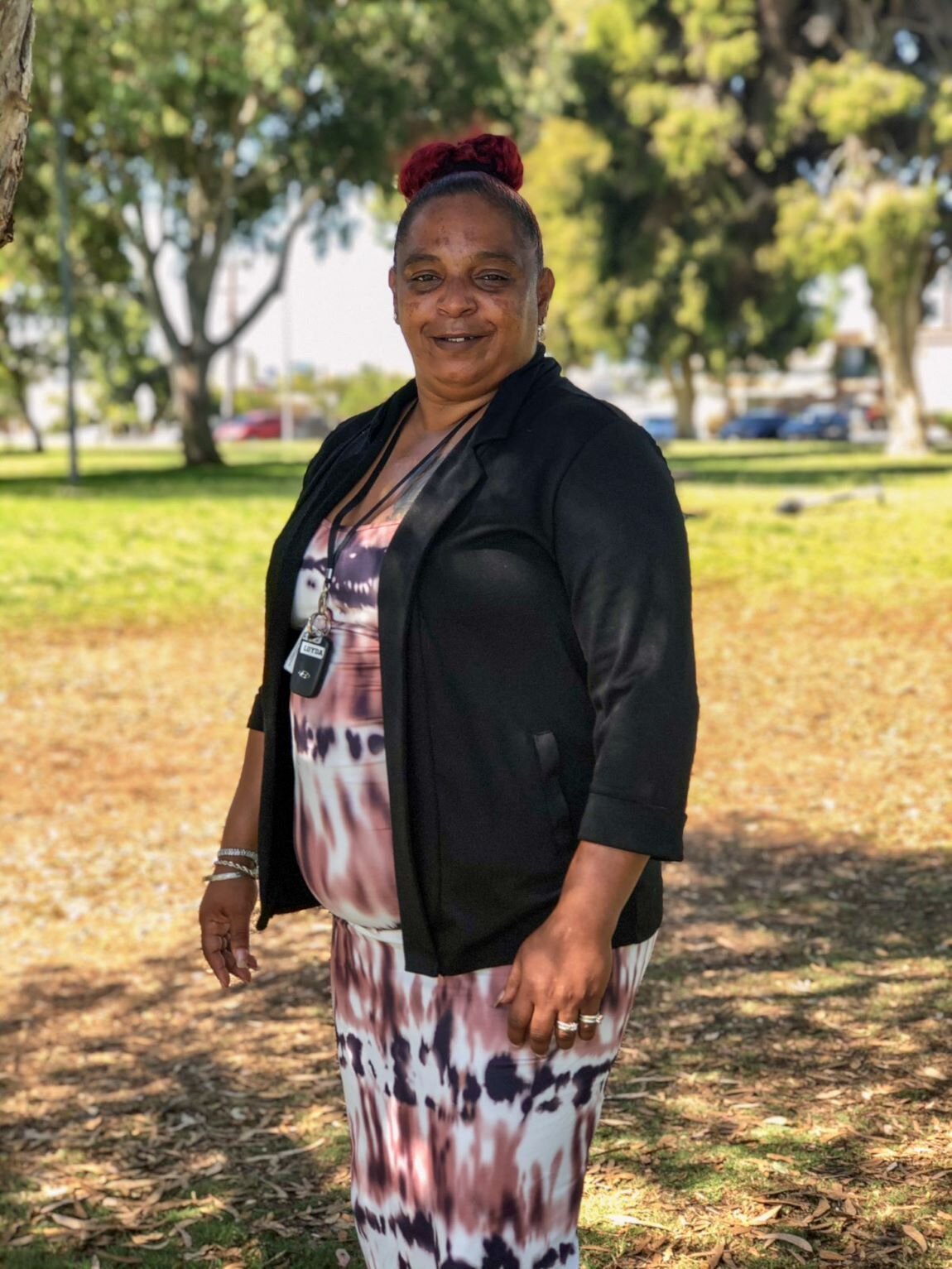Meeting Paul for the first time, one is struck by his signature Texas twang. It’s a delicate speech pattern that savors each vowel, and sometimes, makes one believe that they aren’t in Southern California, but deep in the heart of Texas.
Paul outside of CERRC. September 2021.
It shouldn’t come as a surprise since Paul grew up outside of Dallas in the city of Plano.
And one would also not be surprised that Paul was a football standout—his broad shoulders and strong frame exude athleticism. In fact, his talents landed him with a football scholarship at LSU in Baton Rouge—a powerhouse of the Southeastern Conference.
But beneath the layers of this born and bred Texan, lies so much more. Growing up, he admits he had a really great life.
“My parents divorced when I was really young. But I loved my parents and got to know my birth mother as I got older,” Paul recalled.
But in his teen years, Paul’s birth mother faced her own issues.
“My step-father was a raging alcoholic and would beat my mother senseless,” Paul said.
There was a lot of weight on Paul and his siblings, thinking about the safety of their mother. Then, one event would change the course of their lives forever.
“One night, there was an accident,” Paul said. “Mom had to go to the hospital.”
But instead of driving to the hospital, Paul and his brother drove over to his step-father’s house.
“There were police everywhere. It was a mess,” Paul said.
And then, Paul reacted.
He picked up a butcher knife and stabbed his stepfather in the chest.
Paul was only 17.
Though Paul was acquitted of any wrongdoing, the event replays mercilessly in Paul’s mind. And it is the main reason why Paul started using drugs.
“I started with cocaine, then heroin, metho, ecstasy,” Paul recalled.
For nearly 30 years, he relied on drugs to escape the indescribable pain of that night in his mother’s kitchen.
In between, he’s spent time in and out of prison. And during his most recent stint in prison, Paul decided he needed a change.
“March 7, 2020 was the day I decided to stop using drugs,” Paul said. “Two of the guys with me in prison were doing drugs, and I told them I was done. I decided to change. I was tired of seeing drugs ruin my life.”
Since then, Paul has not used substances. He was released from prison on March 5, and as part of his probation, enrolled in services at the Central East Regional Recovery Center (CERRC), operated by Episcopal Community Services in San Diego.
At CERRC, clients receive outpatient recovery services, including in-depth assessments, individual counseling, group treatment, and more.
But Paul was reluctant to commit to the program at first.
“I had just enrolled and my counselor, Trisha, called to tell me that I was going to class three days a week, for an hour and a half,” Paul recalled. “I told her, ‘I can’t do that. I’m not gonna do that—I gotta work.’”
But his CERRC counselor was persistent.
Paul and his CERRC Counselor Trisha. September 2021.
“Trisha said to give her two weeks of her class and see how it goes,” Paul said. “That was just six classes, so we tried it out.”
The rest, as they say, is history.
“Now, they can’t get rid of me!” Paul quipped. “I just want to spend my life inspiring others, just like ECS inspired me. My ultimate goal is to be affiliated with ECS as long as possible. That’s how much this program means to me.”
Paul is the first to acknowledge that recovery is a process, but he knows that he has a community behind him.
“ECS has made me realize that there is a better life,” Paul said. “If I didn’t have ECS, I would not be working. I would not be housed. I would not have food.”
And now, Paul basks in this new chapter .
"If you could have seen me before, I was a completely different person," Paul said. "My life has changed. This program helped me to change my life."






